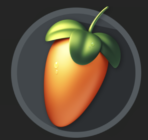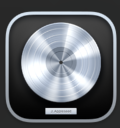DAW Comparison: Ableton, FL Studio or Logic Pro in 2023
- Published on
The digital audio workstation (DAW) landscape has always been dynamic, filled with cutting-edge innovations and passionately debated preferences. In 2023, three major contenders—Ableton, FL Studio, and Logic Pro—continue to reign supreme, each offering a unique palette of features and capabilities. Let's dive deep into the realms of these giants and see how they stack up against each other.
| Ableton | FL Studio | Logic Pro |
|---|---|---|
 |  |  |
A Brief History:
Ableton Live: Born in 2001, Ableton Live has become renowned for its intuitive interface and robust live performance capabilities. What started as a simple tool for electronic music has expanded its domain to accommodate a diverse range of music genres.
FL Studio: Previously known as Fruity Loops, this DAW, introduced in 1997, has seen massive growth in its capabilities. With its roots in the loop-based sequencing realm, it has grown to become a full-fledged DAW favored by producers worldwide.
Logic Pro: Apple's contribution to the DAW world, Logic Pro, has its origins dating back to the early '90s. Acquired by Apple in 2002, it has since evolved, integrating seamlessly with other Apple products and maintaining a robust professional toolset.
Feature Comparisons:
- Interface and Workflow:
- Ableton: Famed for its dual view - the clip-based Session View and the Arrangement View. This DAW is intuitive and great for live performances and composing alike.

- FL Studio: With a customizable and pattern-based workflow, it offers a unique experience of sequencing. The Channel Rack, Piano Roll, and Mixer are its standout features.

- Logic Pro: Its single-window workspace is clutter-free and integrates seamlessly with its set of tools. It also offers a Score Editor for those inclined towards traditional notation.

Instruments and Effects:
- Ableton: Boasts a wide array of software instruments like Wavetable and Operator. Its effect racks can be easily combined and customized.
- FL Studio: Features numerous synths like Harmor and Sytrus. Its mixer tracks are laden with effects and can be combined in any order.
- Logic Pro: Comes packed with a robust set of instruments including Alchemy and EXS24 sampler. Its Space Designer reverb and Delay Designer are top-notch.
Price Point:
- Ableton: Has three pricing tiers - Intro, Standard, and Suite, catering to different needs and budgets.

If you are a student be sure to go for the student discount! (this is not always available)

- FL Studio: Offers a one-time payment model with free lifetime updates. Has various editions like Fruity, Producer, and Signature.

- Logic Pro: With a one-time purchase, users get access to the full suite of tools, making it a cost-effective option for Apple users.

- Integration & Performance:
- Ableton: Known for its seamless integration with MIDI controllers and its Max for Live extension for customizable effects and instruments.
- FL Studio: Offers top-tier performance with multi-core support and compatibility with many third-party plugins.
- Logic Pro: Has the advantage of deep integration with macOS, ensuring stability and efficient performance.
So, Which One Is For You?
- If you're into live performances or electronic music, Ableton is a worthy contender. Best suited for live performers, electronic music producers, and those who enjoy an intuitive clip-based approach.
- Beatmakers and those who prefer a pattern-based workflow might lean towards FL Studio. Perfect for those who prefer a pattern-based approach, and desire a DAW that grows with them thanks to free lifetime updates.
- If you're looking for an all-in-one solution with expansive libraries and recording capabilities, Logic Pro is the way to go. Ideal for Apple loyalists, professionals seeking a one-time purchase DAW with a rich toolset, and those working across multiple Apple devices.
Conclusion:
Choosing a DAW often boils down to individual preference, the kind of music one is producing, and specific workflow requirements. Each of the above DAWs has carved its niche in the music production world and offers a unique set of features. It's advisable to make use of trial versions to get a hands-on experience before making a decision. The most important part is to just make music! Happy producing! 🎧
- Authors

- Name
- programox
- admin@programox.com